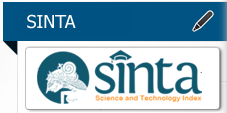PHYSIOLOGY OF SOCCER IN THE HEAT
Abstract
Soccer is a sport play-able in various condition of environment, and one factor that affects this game is in heat situation, that can be one of key factor that change the match outcome. For the example is the big possibility that visiting team outside Arab countries gone to played at Gulf Region decreased winning possibility 3% for a increased 1°C temperature compared to the home team that easier to win under this circumstances. The home team had already aclimatized with the environment condition and often played in the heat temperature.
Played soccer in the heat could increased sweat rate and peripheral vasodilation as a result to released the extra heat from the body, which affected dehidration phase and more metabolism to make more energy. In the elite level, pressure from the enviromental factors attracted the attention of both practitioners and the policy’s holders. In the Uni European Zone, match was usually played in the heat (example: at Madrid, Spain, at 30 degree of celcius). Temperature that exceeds 30 degree of celcius (maximum at 35 degree) for the example at the previous world cup 2014 Brazil could made the players got stressed because of the heat and got problems, one of them is decreased 3% of passing accuracy.
Full Text:
PDFReferences
Aldous, J. W., Chrismas, B. C., Beel, L., Akubat, I., Dascombe, B. and L. Taylor, L. (2014). Hot environment mediated decrements in soccer-specific capacity utilising a non-motorised treadmill soccer-specific simulation (ispt). In: 4th World Conference on Science and Soccer (WCSS), Portland, USA.
Aldous JWF, Chrismas BCR, Akubat I, Dascombe B, Abt G and Taylor L (2016) Hot and Hypoxic Environments Inhibit Simulated Soccer Performance and Exacerbate Performance Decrements When Combined. Front. Physiol. 6:421. doi: 10.3389/fphys.2015.00421
Aughey, R. J., Hammond, K., Varley, M. C., Schmidt, W. F., Bourdon, P. C., Buchheit, M., Simpson, B., Garvican-Lewis, L. A., Kley, M., Soria, R., Sargent, C., Roach, G. D., Claros, J. C. J., Wachsmuth, N. and C.J. Gore (2013). Soccer activity profile of altitude versus sea-level natives during acclimatisation to 3600 m (isa3600). British Journal of Sports Medicine, 47, i107-i113.
Bangsbo. J. Physiological Demands of Football. (2014) Sports Science Exchange Article #125. www.gssiweb.org.
Brocherie F, Girard O, Farooq A, Millet GP. 2015. Influence of weather, rank, and home advantage on football outcomes in the Gulf region. Med Sci Sports Exerc. 47:401–410.
Carling C, Dupont G, Le Gall F. 2011. The effect of a cold environment on physical activity profiles in elite soccer match-play. Int J Sports Med. 32:542–545.
Corbett J, Neal RA, Lunt HC, Tipton MJ. 2014. Adaptation to heat and exercise performance under cooler conditions: a new hot topic. Sports Med. 44:1323–1331.
Edwards AM, Noakes TD. 2009. Dehydration. Sports Med. 39:1–13. Folgado H
Faude, O., Koch, T. & Meyer, T. (2012). Straight sprinting is the most frequent action in goal situations in professional football. J Sports Sci, 30, 625-31.
Garvican, L. A., Hammond, K., Varley, M. C., Gore, C. J., Billaut, F. & Aughey, R. J. (2013). Lower running performance and exacerbated fatigue in soccer played at 1600 m. International Journal of Sports Physiology and Performance.
George P Nassis, Joao Brito, Jiri Dvorak, Hakim Chalabi, Sebastien Racinais. (2017). The association of environmental heat stress with performance: analysis of the 2014 FIFA World Cup Brazil. Downloaded from http://bjsm.bmj.com/ on April 13, 2017 - Published by group.bmj.com
Grantham, J., Cheung, S. S., Connes, P., Febbraio, M. A., Gaoua, N., González-Alonso, J., Hue, O., Johnson, J. M., Maughan, R. J., Meeusen, R., Nybo, L., Racinais, S., Shirreffs, S. M. & Dvorak, J. (2010). Current knowledge on playing football in hot environments. Scandinavian Journal of Medicine & Science in Sports, 20, 161-167.
Grundstein A, Ramseyer C, Zhao F, et al. A retrospective analysis of Amer- ican football hyperthermia deaths in the United States. Int. J. Biometeorol. 2012; 56:11Y20.
Joshua Trewin , César Meylan, Matthew C. Varley & John Cronin (2017): The influence of situational and environmental factors on match-running in soccer: a systematic review, Science and Medicine in Football. http://dx.doi.org/10.1080/24733938.2017.1329589
Lago-Penas C. 2012. The role of situational variables in analysing physical performance in soccer. J Hum Kinet. 35:89–95.
Link D, Weber H. 2015. Effect of ambient temperature on pacing in soccer depends on skill level. Journal of Strength and Conditioning Research, Ahead of Print. 1–17.
McSharry, P. E. (2007). Altitude and athletic performance: Statististical analysis using football results. British Medical Journal, 335, 1278-1281.
Mohr, M. & Krustrup, P. (2013). Heat stress impairs repeated jump ability after competitive elite soccer games. Journal of Strength and Conditioning Research, 27, 683-689.
Mohr, M., Krustrup, P. & Bangsbo, J. (2003). Match performance of high-standard soccer players with special reference to development of fatigue. Journal of Sports Sciences, 21, 519-28.
Mohr, M., Krustrup, P. & Bangsbo, J. (2005). Fatigue in soccer: A brief review. Journal of Sports Sciences, 23, 593-599.
Mohr, M., Krustrup, P., Nybo, L., Nielsen, J. J. & Bangsbo, J. (2004). Muscle temperature and sprint performance during soccer matches – beneficial effect of re-warm-up at half-time. Scandinavian Journal of Medicine & Science in Sports, 14, 156-162.
Mohr, M., Mujika, I., Santisteban, J., Randers, M. B., Bischoff, R., Solano, R., Hewitt, A., Zubillaga, A., Peltola, E. & Krustrup, P. (2010). Examination of fatigue development in elite soccer in a hot environment: A multi-experimental approach. Scandinavian Journal of Medicine & Science in Sports, 20, 125-132.
Mohr, M., Nybo, L., Grantham, J. & Racinais, S. (2012). Physiological responses and physical performance during football in the heat. PLoS One, 7, e39202.
Nassis, G. P. (2013). Effect of altitude on football performance: Analysis of the 2010 fifa world cup data. Journal of Strength & Conditioning Research, 27, 703-707.
Nassis GP, Brito J, Dvorak J, Chalabi H, Racinais S. 2015. The association of environmental heat stress with performance: analysis of the 2014 FIFA World Cup Brazil. Br J Sports Med. 49:609–613.
Nybo, L., Rasmussen, P. & Sawka, M. N. (2014). Performance in the heat— physiological factors of importance for hyperthermia-induced fatigue. Comprehensive Physiology, 4, 657-689.
Özgünen KT, Kurdak SS, Maughan RJ, Zeren Ç, Korkmaz S, Yazιcι Z,… Dvorak J. 2010. Effect of hot environmental conditions on physical activity patterns and temperature response of football players. Scand J Med Sci Sports. 20:140–147.
Paul D, Bradley PS, Nassis GP. 2015. Factors affecting match running performance of elite soccer players: shedding some light on the com-plexity. International Journal of Sports Physiology and Performance, 10:516-519.
Périard J, Racinais S, Sawka M. 2015. Adaptations and mechanisms of human heat acclimation: applications for competitive athletes and sports. Scand J Med Sci Sports. 25:20–38.
Racinais S, Alonso J-M, Coutts AJ, Flouris AD, Girard O, González-Alonso J, . . . Mitchell N. 2015. Consensus recommendations on training and competing in the heat. Scand J Med Sci Sports. 25:6–19.
Sawka, M. N., Cheuvront, S. N. and R.W. Kenefick (2012). High skin temperature and hypohydration impair aerobic performance. Experimental Physiology, 97, 327-332.
Sawka, M. N., Leon, L. R., Montain, S. J. and L.A. Sonna (2011). Integrated physiological mechanisms of exercise performance, adaptation, and maladaptation to heat stress. Comprehensive Physiology, 1, 1883-1928.
Schulze E, Daanen H, Levels K, Casadio JR, Plews DJ, Kilding AE, . . . Schulze E. 2015. Effect of thermal state and thermal comfort on cycling performance in the heat. Int J Sports Physiol Perform. 10:655–663.
Taylor, N., A, S (2014). Human heat adaptation. Comprehensive Physiology, 4, 325-365.
Waldron M, Highton J. 2014. Fatigue and pacing in high-intensity inter-mittent team sport: an update. Sports Med. 44:1645–1658.
DOI: https://doi.org/10.26751/jikk.v9i2.457
Refbacks
- There are currently no refbacks.
Universitas Muhammadiyah Kudus
Jl. Ganesha Raya No. 1 Purwosari Kudus 59316
Tel/ Fax +62-291-437218
Whatsapp : wa.me/+6285117477445
Email : lppm@umku.ac.id
Jurnal Ilmu Keperawatan dan Kebidanan Indexed by:

This work is licensed under a Creative Commons Attribution-ShareAlike 4.0 International License.





_Logo_(PNG-720p)_-_Vector69Com1.png)





